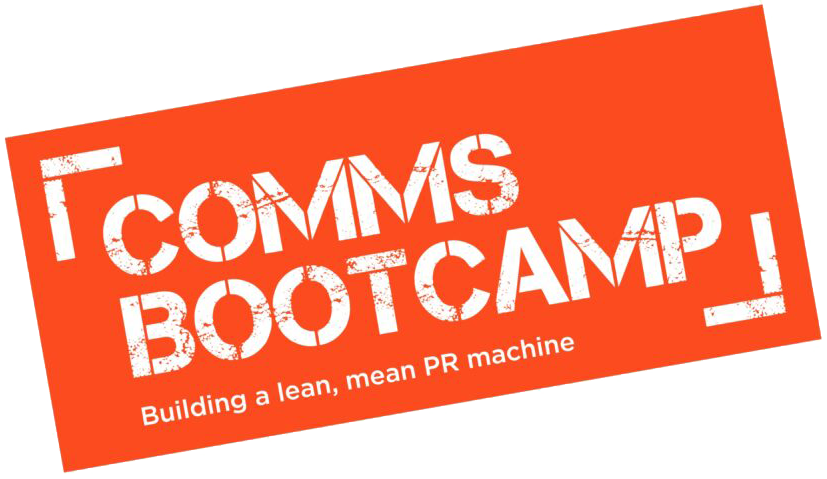How to get shortlisted (and win) awards
Welcome to Bootcamp
This blog forms the latest in our Comms Bootcamp series, giving you the tools, insights and techniques you need to get your marketing communications in shape and build a lean, mean, PR machine! For more posts in this series, visit our Comms Bootcamp page.
How to get shortlisted (and win) awards
At Wildfire we know a thing or two about writing winning award entries — for ourselves and our clients. And we’ve been on the judging panel for many a PR and marketing award scheme too.
So we know that anyone who thinks they can rattle off an entry in a matter of days — or even hours — and get on that awards shortlist is underestimating the task in hand.
Writing an award-worthy entry takes forward planning, preparation, solid facts and evidence — and a flair for telling a compelling story.
In this post, Wildfire MD (and long-time awards judge) Lou Palmer shares her insider tips on how to give your project, product, or company the best chance of making it into the awards spotlight…
1. Plan ahead and know your deadlines
I can’t stress enough how important it is to be ahead of the deadlines. Don’t assume you can write a decent entry in a few days. Even if you have the right information at your fingertips, there’ll be internal reviews to consider and possibly approvals from third parties like customers.
Work a minimum of six weeks out from the deadline to give yourself time to review the requirements and the information you need to do your award entry justice. Run your timeline to the early-bird deadlines too — it’ll give you room if approval processes are slower than expected.
As part of our Comms Bootcamp series, we’ve created handy lists of this year’s marketing awards deadlines and tech award deadlines here.
Be aware of the finer print too. Some awards schemes require you to book seats if you are shortlisted, others want you to present in person on a specific date. Some will even publish your submitted entry — are you comfortable for that information to be shared publicly?
Unless you can tick all the qualifying boxes, your entry will be a non-starter.
2. Understand the entry requirements
Before doing anything, read the entry guidelines. Sometimes these are posted publically on the award’s website, other times they may be hidden as a PDF or require you to create an account. Either way, make sure you dig them out, they’ll tell you clearly all the boxes you need to tick for your entry to even be considered by the judges.
Has your project taken place in the timescales required? What geographic region do the awards cover? When does your product need to have launched? Is your organisation the right size or operating in the right industry? Are ‘vendors’ excluded?
3. Gather your evidence and information
Next, assess what the awards are really looking for from your project, product, or company. Can you really deliver what it takes to create an award-winning entry?
What the judges want to see will be set out in a category overview. But check if the awards scheme also offers more specific guidance on what to include in your entry. Look for FAQs and download the award entry form.
Can you honestly provide everything the judges want? They’ll use scoring sheets that cover all aspects of the category criteria, so if they want customer stories, testimonials, financials, or hard metrics, you’d better make sure you can give these.
4. Create your narrative and tell a story
Wildfire at the PRCA Dare awards
Presenting facts and stats is critical, but they can be dry and unengaging. Yet go too far the other way by over-embellishing and you’ll lose the judges with a lack of substance.
Winning award entries clearly demonstrate they meet all the criteria — but they also deliver a compelling story that engages and inspires, showcasing how a product, service or company is truly stand-out or different.
5. Don’t forget the finer details
After writing your entry you’ll be keen to get it submitted — but don’t rush the final stage of this process.
Proof-read your entry — grammatical mistakes and typos can be very irritating to the judges. And check the word count, as some schemes will simply cut anything that goes over the limit — and that could be your best stat or most compelling evidence.
The submission stage can also be your opportunity to highlight confidential information that is ‘for judges’ eyes only’. And it’s where you can upload assets like videos, logos and ‘supporting evidence’ — although never overrely on the latter. If it’s not in your entry, there’s no guarantee the judges will even open the supporting files.
Bonus tip — Add awards to your calendar NOW
Don’t forget to mark in your calendar when the shortlist will be released. And, if you’ve followed our guidance, it’s likely you’re in with a shot — so why not pop a placeholder in the diary for the award ceremony while you’re at it?
If you’re looking for support in delivering winning award entries, set up a call with us.





